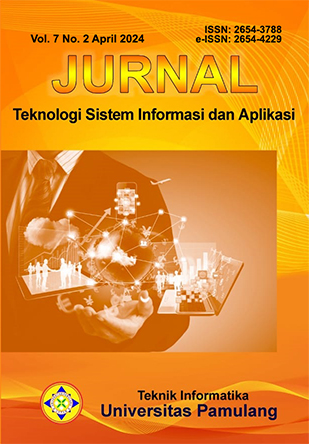Comparing the Developmental Complexity of Different Game Engines by Creating the Same Game Using Two Different Engines
DOI:
https://doi.org/10.32493/jtsi.v7i2.41654Keywords:
game engine, game, gamemaker, godot, comparisonAbstract
Game development is often considered to be a vague topic. With many beginner programmers interested in independent game development as an occupation, one must find out where should they start. Determining a first game engine could be a difficult choice for someone, and many beginner programmers hoped that their skills and early experiences could be utilized in the game development environment. Many comparisons do not detail what makes one game engine more difficult to learn than the other, and would only present vague terms such as because one engine can create a more complex game, yet it does not state how that would affect a game engine’s learning curve. Research must be conducted to clear out this vagueness. Inside a game is basically a series of objects interacting with one another. Therefore, it should not be a problem when a developer switches between game engines, and yet these developers could have a faster development time when using a different engine. The result of this research is to determine how that difference is possible by comparing the developmental process of two different game engines (gamemaker and Godot) and determine which one is objectively better than the other in specific terms.
References
Barg, M. (2024). Ludo-Hermeneutics: The Interpretation of Digital Games Exemplified in the Puzzle Game Portal. Stockholm: Stockholm University.
Christopoulou, E., & Xinogalos, S. (2021). Overview and Comparative Analysis of Game Engines for Desktop and Mobile Devices. ResearchGate, 21-36.
Goh, E., Al-Tabbaa, O., & Khan, Z. (2023). Unravelling the complexity of the Video Game Industry: An integrative framework and future research directions. Elsevier, 12(12), 1-18.
Jonduke. (2020). Analyzing Steam Reviews and Users Data. Medium, 1-8.
Pierce, M. (2023). The simple game that keeps on giving. Medium, 1-4.
Shapiro, L. (2021, June 25). Embodied Cognition . Stanford Encyclopedia of Philosophy, pp. 1-11.
Sobota, B., & Pietrikova, E. (2023). The Role of Game Engines in Game Development and Teaching. intechopen, 6-30.
Verbeke, W., Dejaeger, K., Martens, D., Hur, J., & Baesens, B. (2012). New Insights into Churn Prediction in the Telecommunication Sector: A Profit Driven Data Mining Approach. European Journal of Operational Research, 218(1), 211-229. doi:10.1016/j.ejor.2011.09.031
Witten, I. H., Frank, E., & Hall, M. A. (2011). Data Mining: Practical Machine Learning Tools and Techniques (3rd ed.). Burlington: Morgan Kaufmann.
Yap, B. W., Rani, K. A., Rahman, H. A., Fong, S., Khairudin, Z., & Abdullah, N. N. (2014). An Application of Oversampling, Undersampling, Bagging and Boosting in Handling Imbalanced Datasets. Proceedings of the First International Conference on Advanced Data and Information Engineering (DaEng-2013). 285, pp. 13-22. Singapore: Springer. doi:10.1007/978-981-4585-18-7_2
Downloads
Published
How to Cite
Issue
Section
License
Copyright (c) 2024 Normalisa, Pradana Atmadiputra, Jibran Wafi Prawiko

This work is licensed under a Creative Commons Attribution-NonCommercial 4.0 International License.
Authors who publish with this journal agree to the following terms:
- Authors retain copyright and grant the journal right of first publication with the work simultaneously licensed under a Creative Commons Attribution License that allows others to share the work with an acknowledgement of the work's authorship and initial publication in this journal.
- Authors are able to enter into separate, additional contractual arrangements for the non-exclusive distribution of the journal's published version of the work (e.g., post it to an institutional repository or publish it in a book), with an acknowledgement of its initial publication in this journal.
- Authors are permitted and encouraged to post their work online (e.g., in institutional repositories or on their website) prior to and during the submission process, as it can lead to productive exchanges, as well as earlier and greater citation of published work (See The Effect of Open Access).
Jurnal Teknologi Sistem Informasi dan Aplikasi have CC BY-NC or an equivalent license as the optimal license for the publication, distribution, use, and reuse of scholarly work.
In developing strategy and setting priorities, Jurnal Teknologi Sistem Informasi dan Aplikasi recognize that free access is better than priced access, libre access is better than free access, and libre under CC BY-NC or the equivalent is better than libre under more restrictive open licenses. We should achieve what we can when we can. We should not delay achieving free in order to achieve libre, and we should not stop with free when we can achieve libre.
This work is licensed under a Creative Commons Attribution-NonCommercial 4.0 International (CC BY-NC 4.0) License
YOU ARE FREE TO:
- Share - copy and redistribute the material in any medium or format
- Adapt - remix, transform, and build upon the material for any purpose, even commercially.
- The licensor cannot revoke these freedoms as long as you follow the license terms



_2020_-_7(2)_2024_-_Thumbnail.png)












